Shell Polymers and Personal Care Packaging
Shell Polymers is leveraging both trucks and rails to proactively ensure converters receive an uninterrupted polyethylene (PE) supply when it matters most.
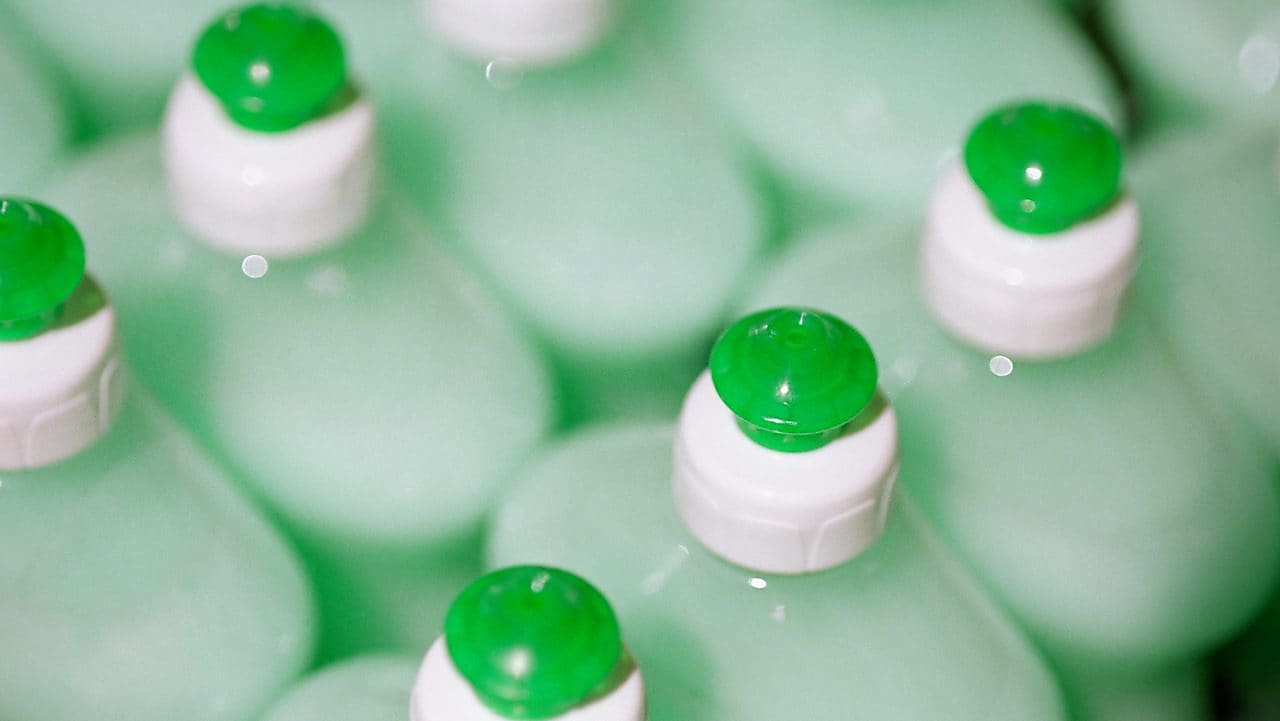
Personal Care Products
The growing need for hygienic products has directly increased the demand for hygienic and personal care products packaged by and made of polyethylene (PE). Since most packages for personal care and beauty products need to be break-resistant, portable, and cost-effective, polymer-based packaging has historically dominated this market. Heightened sanitary concerns and the overall strength of consumer and brand demand have solidified PE’s key role in storing and sharing personal care products going forward.
Need For Hygiene & Personal Protection Drives Demand Growth
While COVID-19 spurred the need for personal protective equipment (PPE), which includes many products made with PE like medical gloves and bodysuits, the trend is being driven by more than just that outbreak. The increasing incidence and prevalence of infectious biological hazards, the risk of physical injuries in labor-intensive industries, and stringent occupational safety regulations are expected to continue driving a need for PPE products in the coming years.1 For example:
- The PPE market is forecast to see incremental growth of $28.67 billion in 2020-24,2 according to Technavio, a global technology research and advisory company.
- The firm added that in 2020, 37% of PPE market growth was in North America alone.
- Major growth in plastic packaging demand that year was driven in part by a 500% increase in hand sanitizer sales during the first half of 2020.3
That skyrocketing growth, driven largely by COVID-19 concerns, created a surge in demand for and shortages of plastic hand soap pumps made with PE.
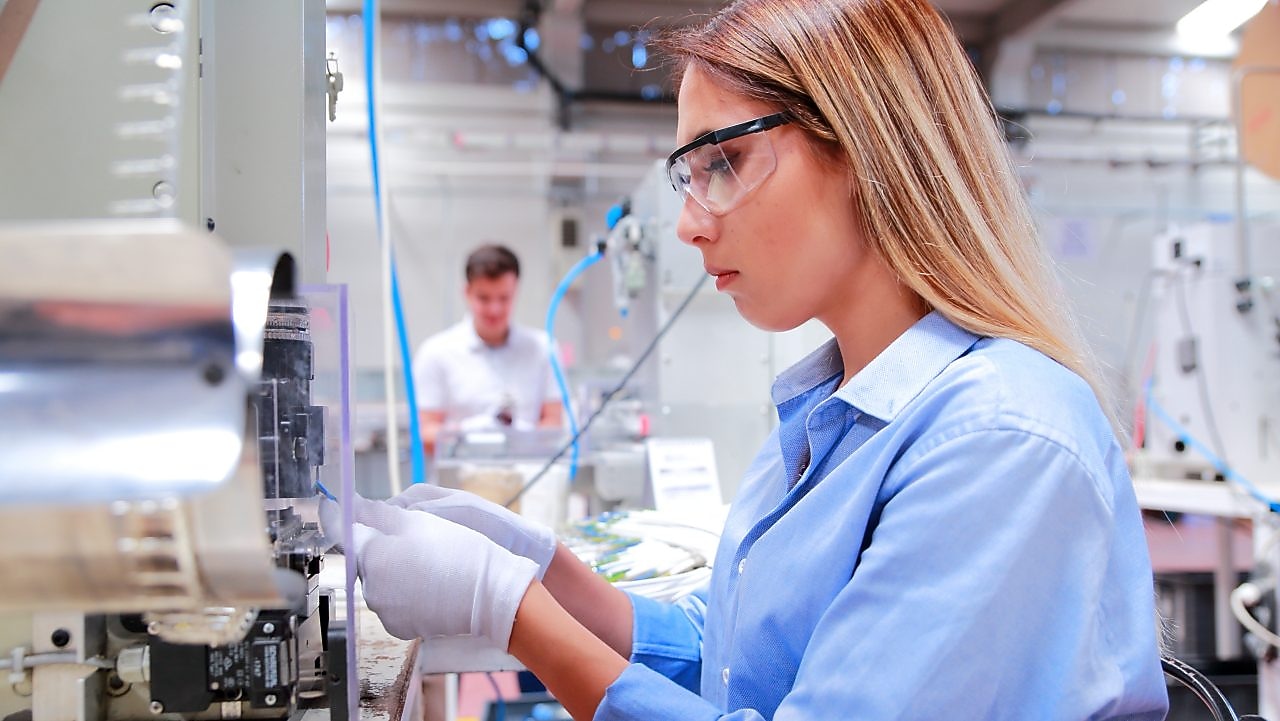
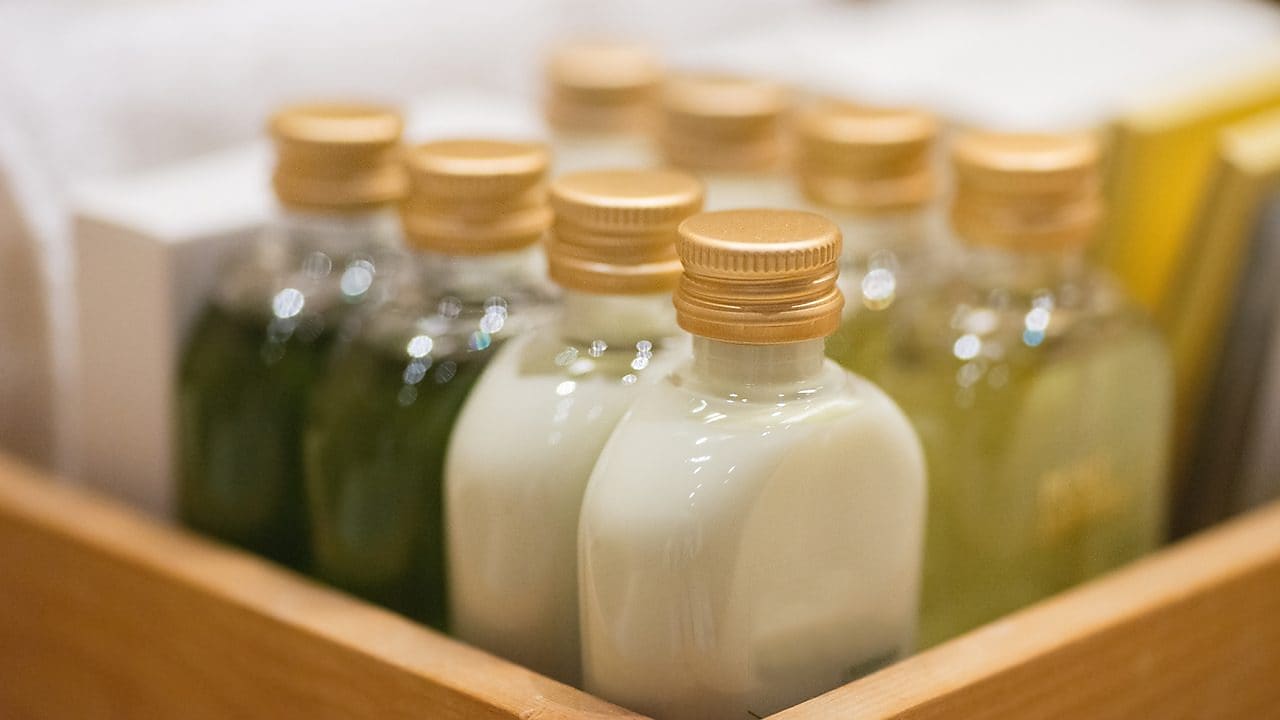
Polyethylene’s Flexibility Aids Personal Care Challenges
Polyethylene’s unique properties allow it to better address common consumer concerns with personal care products. That allowed PE long ago to supersede other traditional types of packaging for personal care and beauty products such as glass, ceramics, aluminum, and paperboard in this market.
PE packaging helps consumers to easily store and save products that can be difficult to contain and consume, like lotions and liquids. And consumers strongly prefer functional packaging that optimizes product use.4 To that end, containers made of PE are reusable, resealable, and easily dispense products compared to other forms of packaging.
Brands are increasingly demanding lighter, cost-effective, sanitary, and durable packaging. That is putting greater pressure on converters to innovate and keep packaging costs low, while also meeting increased consumer demand for personal care products. Shell Polymers can help converters capitalize on trends like these in our innovation center, where they can solve issues, raise operational performance, and trial new product solutions without having to shut down their own lines.
Key Uses Abound for Plastics In Personal Care
Polyethylene is a preferred choice for packaging an array of personal care products because it is simultaneously durable and malleable, making it useful in a variety of applications. PE has traditionally seen strong demand for use in shatterproof/no-spill bottles for hygienic and beauty products such as cosmetics, soap, and shampoo made of high-density polyethylene (HDPE Resin), as well as container lids & bottles using either HDPE or linear low-density polyethylene (LLDPE Resin). More recently, society’s response to COVID-19 required growth in several personal care product niches where PE acts as a foundational element. Those niches include:
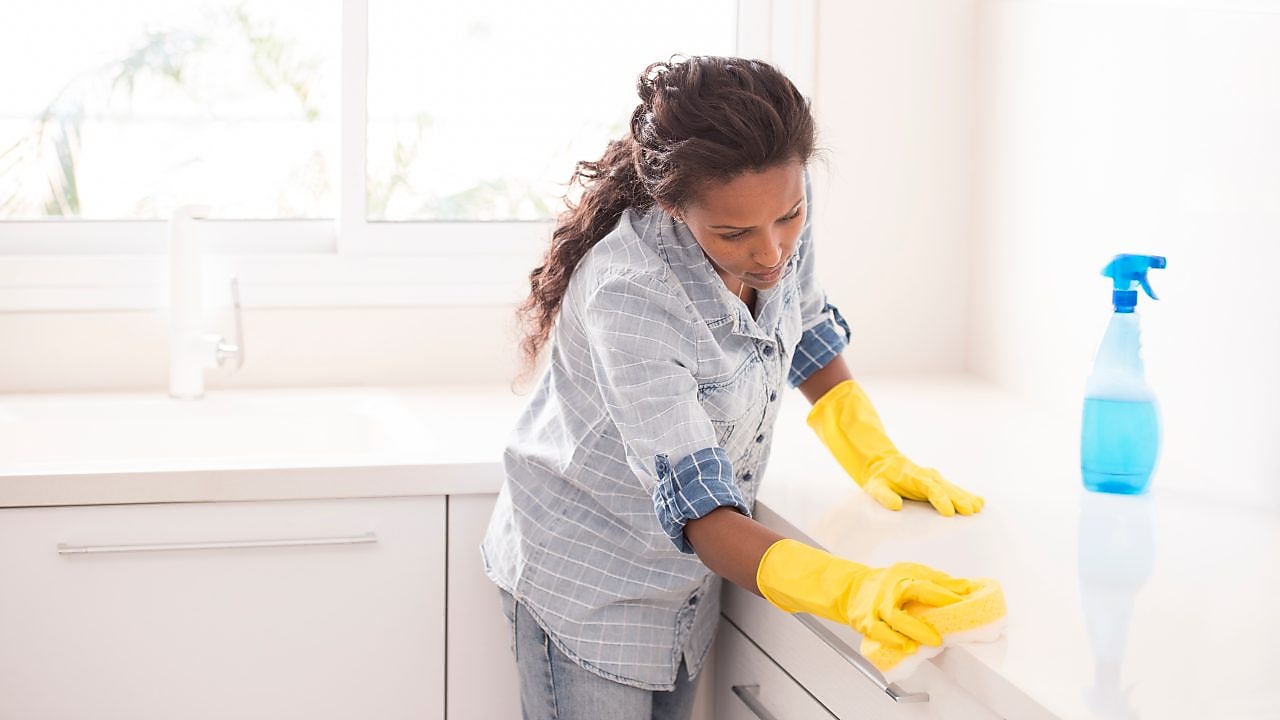
Personal protective equipment, like suits and gloves made from HDPE that are resistant to organic substances
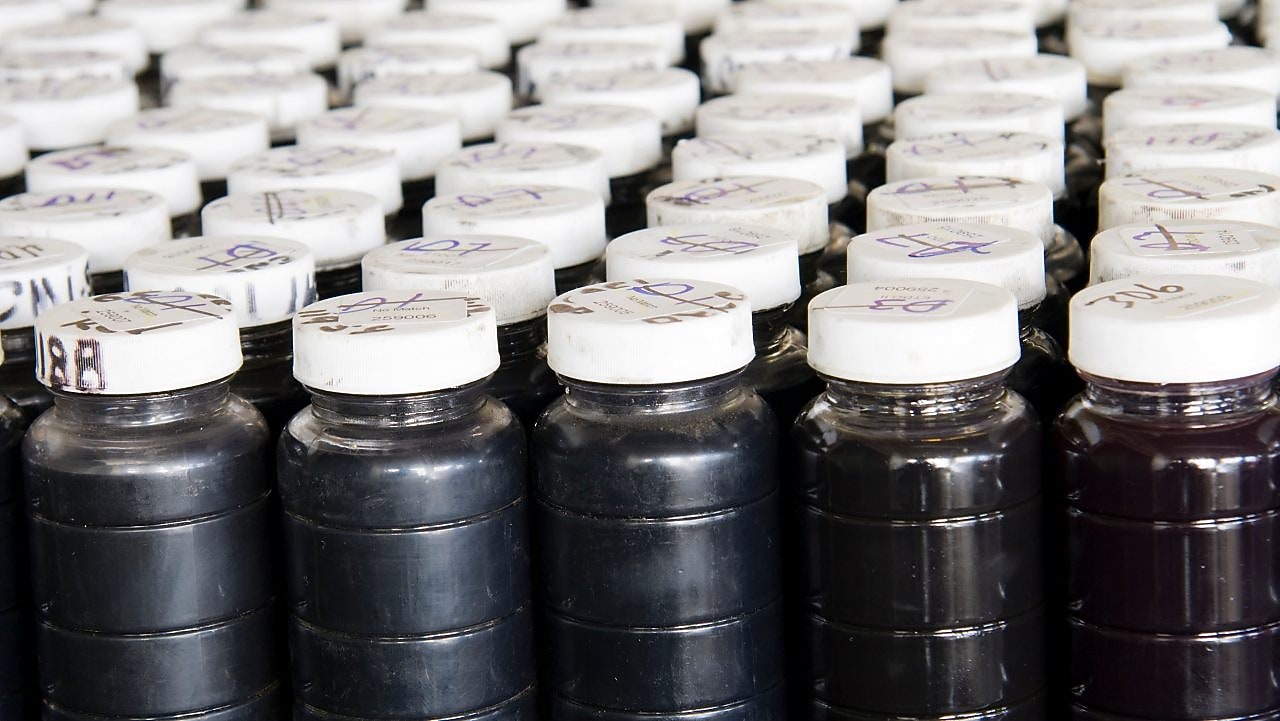
Compact and portable packaging, like containers for pharmaceutical products and medical devices that are made with HDPE
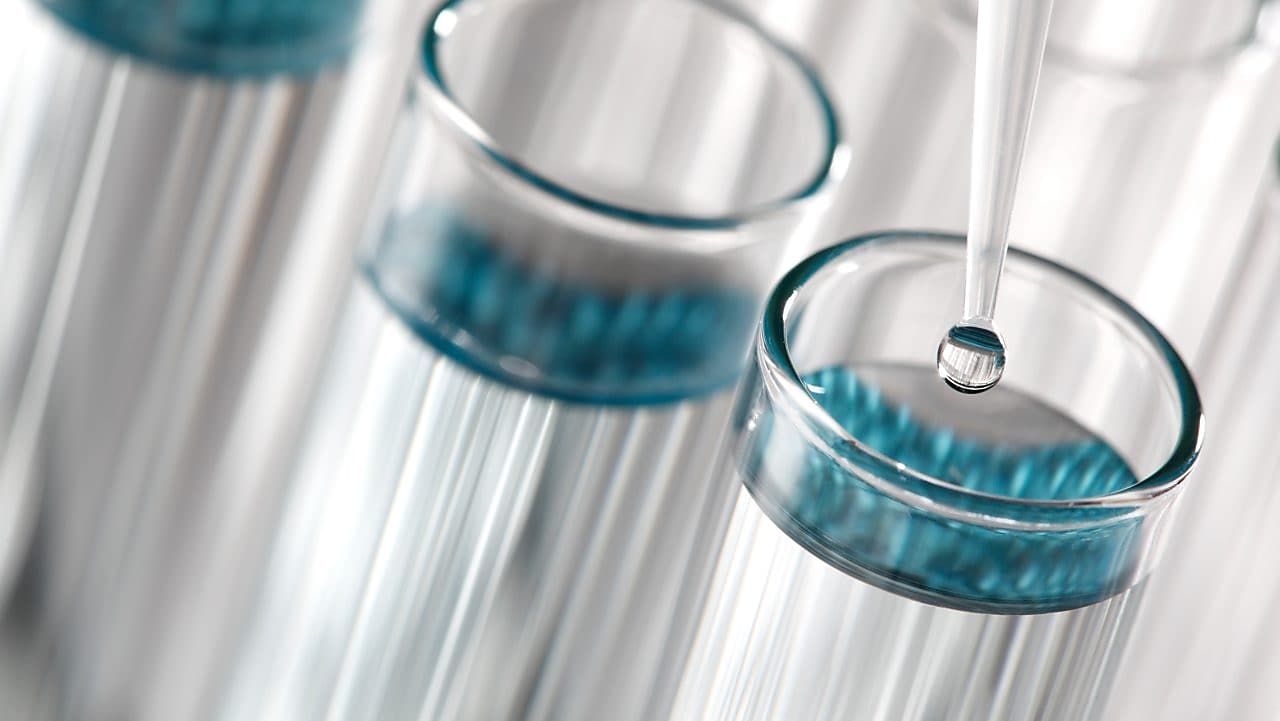
Flexible pouches and tubes for various uses, both medical and sanitary
Dominance of HDPE & LLDPE for Personal Care Products
Plastics in general and polyethylene in particular have enormous popularity and reach in this market segment. Plastics hold 61% of market share5 in a personal care packaging market valued at more than $38 billion.6 The varieties of plastics consumed by this market include HDPE. LLDPE, low-density polyethylene (LDPE), and other plastics.
That market appears to be on the rise. The global personal care market is expected to grow at an annual rate of 5.5%,7 according to Packaging Digest. And the growing popularity of recyclable products8 is benefiting PE, as HDPE is one of the most easily recycled plastic polymers available.
To best leverage the reusability of PE, Shell Polymers is establishing sustainability habits. Those approaches include:
- Pyrolysis, where we take liquid made from plastic waste and transform it into high-end chemicals for reuse
- Circular solutions where we help customers reduce their own emissions through renewable processes like pyrolysis at our Norco, Louisiana chemical plant
- Circular economy goals, like aiming to recycle 1 million tonnes of waste plastic a year globally in our chemical plants by 2025
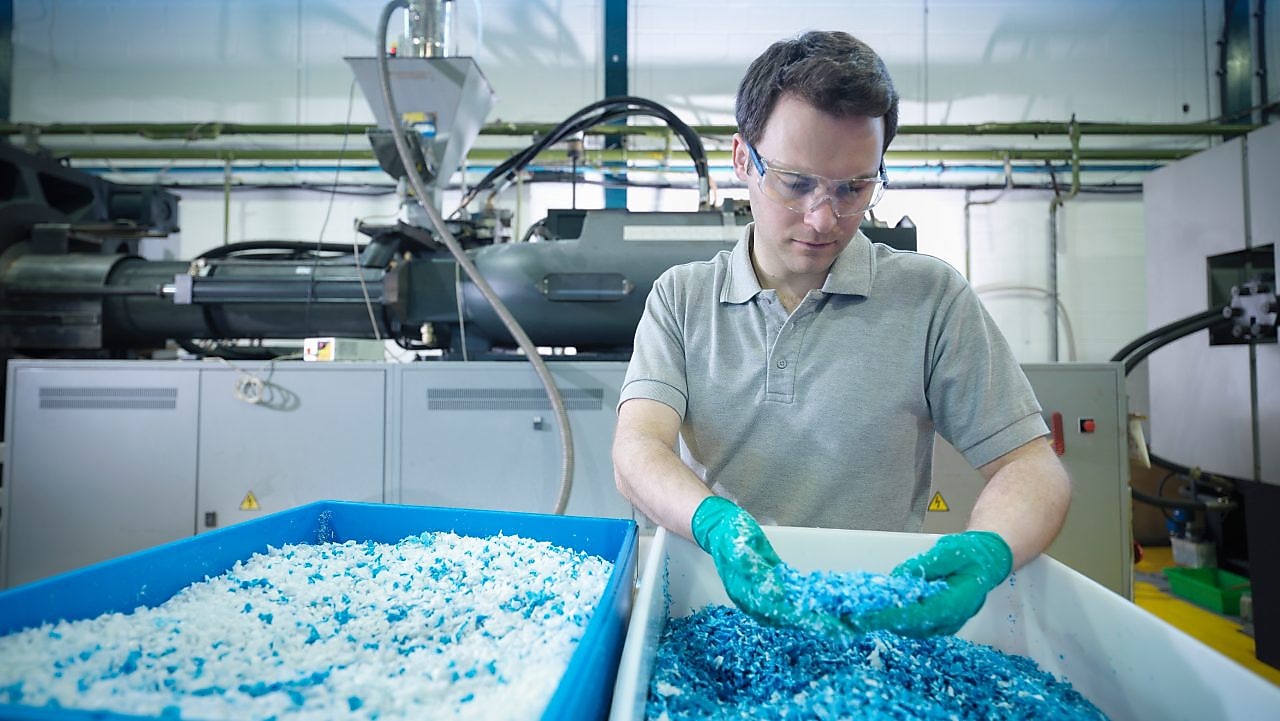
We Enable Quality & Quantity of Resin
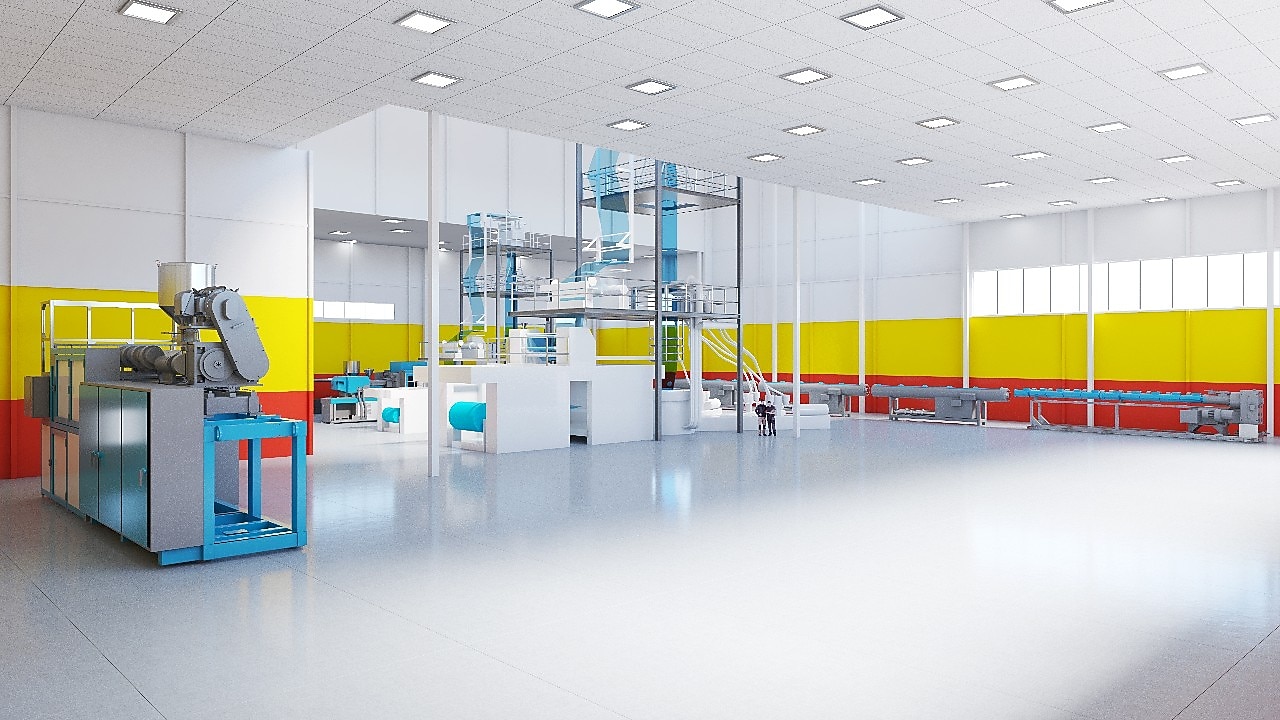
1 Blow Molding
The application hall will have two industrial-sized, blow-molding machines:
- A Kautex electric machine equipped with a mono-layer and size-layer flow head that can be used to manufacture containers of different sizes
- A Uniloy mono-layer hydraulic machine that can be used for dairy applications
2 Blown Film
The application hall will have three industrial-sized Alpine film lines that produce:
- 9-layer blown film
- 5-layer blown film
- Mono-layer blown film
Injection Molding
The application hall will have three industrial-sized KraussMaffei injection molding machines:
- a 650-metric ton machine typically used for making buckets
- a 120-metric ton machine that can be used to make caps and closures
- an 80-metric ton machine for making test parts
Pipe Extrusion
The application hall will have an industrial-sized pipe extrusion machine:
- KrauseMaffei two-layer machine that can make pipe between 1” and 4”
With polyethylene, meeting expectations is a necessity. Converters need consistent resin to ensure consistent end products for end-users, so lot-to-lot consistency is critical. Because of that, many converters are risk-averse and have a hard time trying new resin.
Shell Polymers strives for that consistency with the analytical lab in our PE plant in Monaca, Pennsylvania. The lab is accessible to converters of all sizes if they want to visit and work with our polymer experts. It will help converters achieve the resin consistency they need and provides them a place to get things right before shipment, without having to shut down their own lines for testing.
With the lab and our transparency, we can empower converters to get a similar resin to what they are already using, in both quality and quantity.
Technical Expertise for Converting PE For Personal Care Products
Elliot Carnevale

Technical Service Engineer, Injection Molding
“As sustainability and functionality in use continue to drive material selection in the future, it is my firm belief that a polymer organization -- like Shell Polymers -- that will be positioned to deeply collaborate across the value chain, while also being able to provide unique ‘circular’ products, will be able to help converters in ways that are uncommon in this industry. The mutual benefit to the converter, the consumer, and the world, can potentially be a gamechanger.”
8 https://www.plasticpackagingfacts.org/plastic-packaging/plastic-packaging-by-industry/cosmetic-personal-care/